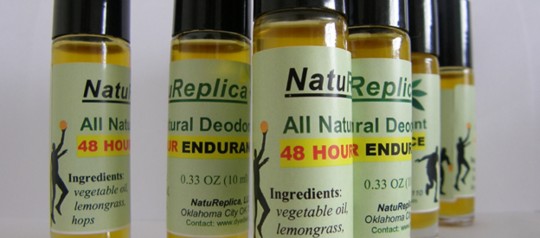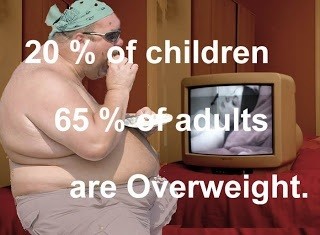Truth About Food
There are over 3000 food additives (see Everything Added to Food in the United States) circulating in American food supply. Therefore it is easy to get confused about what is healthy, what is questionable and what is certainly health damaging for you and your loved ones. While DyeDiet does its best to inform American public about health hazards lurking in the popular food and beverage brands, below are a few useful websites that may help you even more in addressing your concerns.
Center for Science in the Public Interest
Since 1971, CSPI has been a strong advocate for nutrition and health, food safety, alcohol policy, and sound science. Its award-winning newsletter, Nutrition Action Healthletter, with some 900,000 subscribers in the United States and Canada, is the largest-circulation health newsletter in North America. Founded by executive director Michael Jacobson, Ph.D. and two other scientists, CSPI carved out a niche as the organized voice of the American public on nutrition, food safety, health and other issues during a boom of consumer and environmental protection awareness in the early 1970s. CSPI has long sought to educate the public, advocate government policies that are consistent with scientific evidence on health and environmental issues, and counter industry’s powerful influence on public opinion and public policies.
Feingold Association of the United States
An organization of families and professionals founded in 1976, The Feingold® Association of the United States is dedicated to helping children and adults apply proven dietary techniques for better behavior, learning and health, and to generating public awareness of the role of foods and synthetic additives in behavior, learning and health problems.
Harvard School of Public Health
The overarching mission of the Harvard School of Public Health is to advance the public’s health through learning, discovery, and communication. To pursue this mission, the School produces knowledge through research, reproduces knowledge through higher education, and translates knowledge into evidence that can be communicated to the public, policy makers, and practitioners to advance the health of populations.
Our objectives are:
•to provide the highest level of education to public health scientists,
practitioners, and leaders
•to foster new discoveries leading to improved health for the people of this
country and all nations
•to strengthen health capacities and services for communities
• to inform policy debate, disseminate health information, and increase awareness of health as a public good and fundamental right.
The field of public health is inherently multi-disciplinary. So, too, are the interests and expertise of the School’s faculty and students, which extend across the biological, quantitative, and social sciences. With our roots in the basic sciences, we are able to confront the most pressing diseases of our time—AIDS, cancer, and heart disease—by adding to our knowledge of the biological, chemical, genetic, and societal forces underlying disease. Core quantitative disciplines like epidemiology and biostatistics are fundamental to analyzing the broad impact of health problems, allowing us to look beyond individuals to entire populations. And, because preventing disease is at the heart of public health, we also pursue the social sciences to better understand societal influences of health-related behaviors and to inform public policy—both of which are critical elements to educating and empowering people to lead healthier lives.
United States Department of Agriculture / What’s In The Foods You Eat Search Tool, 4.1
Unted States Department of Agriculture / Food and Nutrition
USDA’s Food and Nutrition Service (FNS) works aggressively with State and Federal partners to crack down on fraud and hold bad actors accountable for misusing tax payer dollars. Correcting mistakes and getting rid of waste, fraud and abuse are top priorities and basic common sense. Americans support helping struggling families put food on the table, but they also want to know taxpayer dollars are spent wisely. FNS’ proactive strategies protect he Federal investment in SNAP and ensure that the program is targeted towards ndividuals and families who need it the most.
Eat This, Not That! /The No-Diet Weight Loss Solution
According to the Wikipedia : Eat This, Not That! (ETNT), published by Rodale Inc. in Emmaus, Pennsylvania, United States, is a book series developed from a column from Men’s Health magazine written by David Zinczenko and Matt Goulding. The books not only uncover particularly egregious menu items—especially with the “Worst Foods in America” list—but also direct readers to nutritionally superior dishes. Criteria for unhealthy dishes center on high levels of calories, fat, saturated fat, trans fat, sodium and/or sugar content. The healthier alternatives often include higher levels of fiber and/or protein. The franchise brands itself as the “no-diet weight loss solution.” As of September 2011, the ETNT franchise has sold more than 8 million copies.
Fooducate/ Eat a Bit Better
Are you confused by ingredient lists, nutrition labels, health claims and marketing hype? Fooducate is here to help. We are a team of parents, dietitians, and techies. We realize that at the supermarket you have very little time to analyze food labels and extract the information that is important to you. We’d like to help you make better choices for you and your family.
Get the Fooducate mobile application and use it to:
- Automatically scan a product barcode
- See product highlights (both good & bad)
- Compare products
- Select better alternatives
- Dig deeper and learn more about food and nutrition
Fooducate analyzes information found in each product’s nutrition panel and ingredient list.
Please stand for a healthy American diet and the healthy future of this country!
Category: DyeDiet RECOMMENDED, Healthy diet






